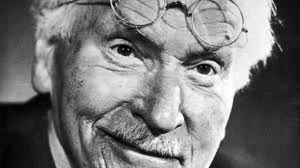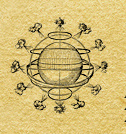Jungian analysis is a method of psychotherapy developed by C.G. Jung, the eminent Swiss psychiatrist (1875-1961).
It is also known as Analytical Psychology. From the Jungian viewpoint, analysis is essentially a dialogue between two people – the analyst and the client Its aim is to help the client get in touch with his/her own inner sources of healing and growth, and thus to arrive at individual answers and solutions. The focus and concentration is on psychological health and balance. Imbalance and one sided thinking in our lives can make us feel out of control, anxious or depressed. Once out of control and out of touch with yourself it becomes difficult to make decisions or think clearly. The role of Jungian Analysis is to understand and make meaning of yourself by redressing imbalance and regain clear thinking and feeling to get in touch with the true self. This enables you to find a way to live a life that nourishes and sustains you in deep connection with yourself and in personal and social relationships.
Because Jungian analysis is adapted to the needs and goals of the individual, it may in practice be any number of things: short-term counseling on a specific problem; sympathetic support through a difficult period; help in resolving conflicts and eliminating symptoms; guidance in developing creative potentials or discovering new life possibilities.
Carl Gustav Jung is one of the pioneers of modern depth psychology or psychology of the unconscious. The unconscious is that part of the psyche over which the ego (or the will) has no control. This is easily seen in habits we cannot break such as addictions, or in autonomous emotional states which “come over us” (also known as complexes), causing us to behave in a way which is troublesome. These difficulties are often called symptoms as neuroses. To make the most of yourself and become what Jung called a whole person, two aspects of the psyche mentioned before, ego consciousness and the unconscious, must communicate with each other and create a harmonious relationship. This is a process he called “individuation,” or becoming who you really are.
One of the most distinguishing characteristics of a Jungian viewpoint is that great value is placed upon understanding symptoms and neuroses. This is because they provide information and clues about understanding unconscious processes which by giving them respect and attention redresses imbalance and links us to the core of our very being, soul work.
Soul work is not the form of any specific ideology or doctrine of salvation, but through assisting the individual to discover the meaning lying in his/her own soul. As Jung often stressed, it is finally within the individual, and not on the level of collective social measures, that the problems of our age must be met and the foundations for a healthy democratic society preserved and strengthened.
Analysis works best face to face with a minimum of two sessions a week – but it is not essential, Skype sessions are also available.
Call me for Counselling, Psychotherapy : Jungian Analysis : Short-term Therapy
Tel: 01993 882047
Skype : julierlyon
email : julie@julielyontherapy.co.uk




